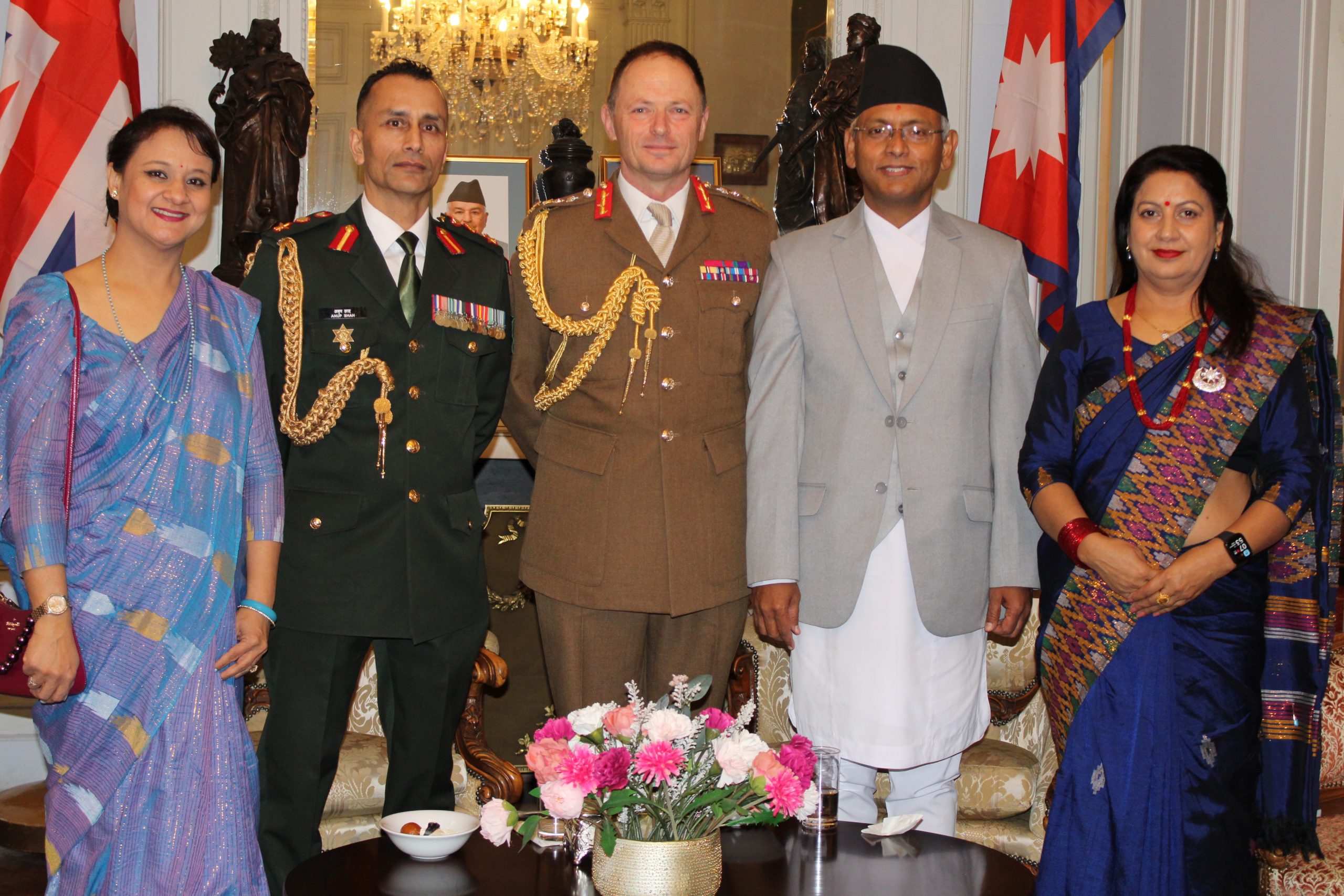International legal experts call for accountability for civil war crimes in Nepal

By Bhagirath Yogi
London – A new report by a high-level fact-finding mission of international human rights lawyers has called on the Nepali state to seize the opportunity provided by a new legislation and finally provide accountability, truth, justice and comprehensive reparations to victims of the country’s decade-long armed conflict.
Addressing an event organised to launch the report at Doughty Street Chambers on Thursday, they pointed towards gaps in the Transitional Justice Law which passed in August after years of political wrangling, and urged the government of Nepal to develop a roadmap for implementation which deliberately and sensitively removes obstacles to justice for victims from historically vulnerable or marginalised groups.
‘Peace without Justice and Accountability? – A caution against impunity in post-conflict Nepal’ calls on both Nepal and the international community to prioritise an approach to transitional justice which is in line with Nepal’s obligations under international law, constitutional law and the judgments of its Supreme Court.
The lawyers travelled to Kathmandu, Nepalgunj, Bardiya and Janakpur in Nepal in March 2024. They met victims of human rights violations committed during and since the conflict, members of the judiciary, civil society organisations, local and national government, diplomats, journalists and UN representatives, to assess the rule of law and access to justice.
Aswini Weeraratne, KC, who was part of the delegation, briefed about their visit and summarised the main conclusions of the report.
Camila Zapata Besso, a UK human rights expert, who was also part of the delegation, said that the Nepali civil war ended in 2006, yet for its victims the violations continue. “The new law provides an opportunity, but its implementation must be victims-focused and rooted in international law if it is to finally provide truth, justice and reparations for all,” she added.
The report contains an extensive analysis of the Transitional Justice Bill which has now been enacted into law. The lawyers conclude that the current law alone excludes swathes of victims from transitional justice, and permits amnesties which would prevent criminal accountability for gross violations of human rights, including those amounting to international crimes. They argue that, until an effective transitional justice process is in place, then the doors to the regular justice system should not be closed to civil war victims.
“Justice for serious human rights violations prevents recurrence, secures dignity for victims whose former abusers are made to answer for their crimes, establishes a record of past events, promotes national reconciliation and contributes to lasting peace”, said María del Rosario Arango Zambrano, a Colombian expert on transitional justice. “That is why it is so important to get these things right”.
“There are definitional issues in the law that will need to be rectified one way or the other”, said Kishali Pinto-Jayawardena, a constitutional lawyer from Sri Lanka. “Effective transitional justice will not be possible so long as the process conflates human rights violations and international crimes, excludes certain gross violations, opens the door for amnesties, and allows for the exclusion of certain victims”.
‘Lack of Accountability’
Dr. Mandira Sharma, co-founder of Advocacy Forum and senior international legal advisor to the International Commission of Jurists (ICJ), said that despite legislative efforts, no significant accountability has been achieved. Successive governments over the last 18 years have failed to investigate abuses, leaving thousands of victims without resolution, she said. “We will continue to advocate to amend those provisions that are not compatible with the international law and standards. We would like to support and engage in the process. The international community should monitor closely how this process unfolds,” she added.
A report contributor, Gita Rasaili, vice chair of the Conflict Victims National Network and a representative of Nepal’s marginalized Dalit community, shared her story. She has been fighting for justice for 20 years following her sister’s murder by the army during the conflict. “Truth, justice and reparation can not be separated. We victims are still here demanding the same thing: truth, justice, and accountability,” Rasaili said, calling upon the government to implement a meaningful process that respects victims’ rights.
The report insists that the transitional justice law, enacted after years of lobbying, needs robust interpretation by the courts, proper implementation, and unwavering international oversight. Barrister Camilla noted that the legislation itself is not a solution; rather, its success hinges on the Nepali government’s commitment to uphold human rights standards and engage transparently with all stakeholders, particularly marginalized communities.
The delegation emphasized the international community’s role in ensuring Nepal’s transitional justice process aligns with global norms. Dr. Sharma warned that the government’s tendency to favor perpetrators risks derailing the effort to achieve lasting peace and rule of law. She urged the global community to advocate for transparent judicial practices, independent commissioners, and protections for civil society actors in Nepal.
Ben Leather, Director of the Peace Brigades International (PBI) UK, highlighted the organisation’s efforts to support human rights defenders in various countries including Nepal. He called on international community to advocate for a victim-centric approach in Nepal’s transitional justice system and hold the government accountable for delivering justice for all victims of the conflict.
From 1996 to 2006, tens of thousands of Nepalis suffered serious human rights violations, including unlawful killing, enforced disappearance, torture, rape and other forms of sexual violence, recruitment of child soldiers, arbitrary arrest and forced displacement in a war between the then royal government and Maoist rebels. Transitional justice is key pillar of the 2006 Comprehensive Peace Agreement, but has not been implemented. The report concludes that “Justice is already overdue, and should not be denied to victims any longer.”



















Facebook Comments